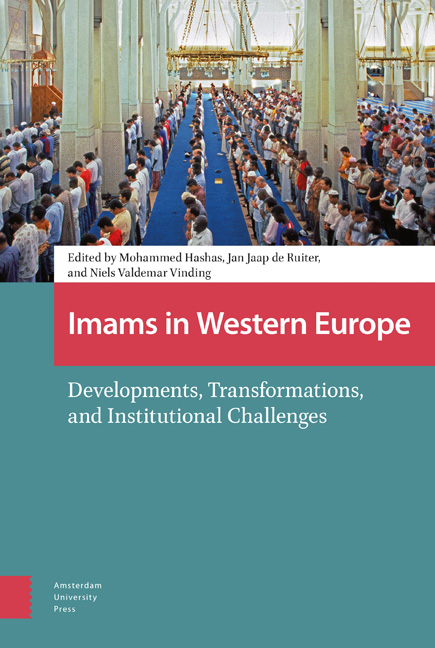7 - Studying Islamic Theology at European Universities
Published online by Cambridge University Press: 06 January 2021
Summary
Abstract
The primary aim of this chapter is to describe the relationship between the last decade's discussions and debates about theology and religious studies and the start of courses in academic Islamic theology at European universities. After a brief outline of the most important positions in this debate, I turn to how Muslim theologians sometimes behave when they describe how the study of Islamic theology ‘should’ be performed. A second aim is to discuss, with the help of a survey sample from Sweden, whether and to what extent Muslims who seek a theological education at a European university are interested in courses on academic Islamic theology. A third and final aim is to discuss why European universities are interested in starting courses in a subject that is often promoted under the title of academic Islamic theology.
Keywords: Islam in Sweden, Islam in Germany, Islamic theology, secular Universities
Introduction
Some more-or-less organized studies of Islam and Muslim texts have been part of the academic curriculum of European universities since the Middle Ages (Martin, 1995). The earliest studies were primarily philological and polemical, often with an overarching purpose of demonstrating that Islam was a false religion. After the rise of the history of religions as a sub-discipline at the end of the nineteenth and the beginning of the twentieth centuries, Islamic studies continued primarily to be the study of history and ancient texts, a process in which Islam and Muslims were generally, if not always, seen as non-European. The Swedish Professor of History of Religions at Uppsala, Geo Widengren (1907-1996), serves as an example here, as he is quoted as having claimed that: ‘Yes, when it comes to the study of Islam I have never done anything on this side of the 12th century’ (quoted in Hjärpe, 2012, p. 270, my translation). I suggest that this quotation tells us much about the early study of Islam in Western Europe, namely that it was rooted in the idea that Islam was only a relevant object of study in relation to the Christian theological traditions, and that consequently scholars should focus on texts and not on living Muslims.
- Type
- Chapter
- Information
- Imams in Western EuropeDevelopments, Transformations, and Institutional Challenges, pp. 121 - 142Publisher: Amsterdam University PressPrint publication year: 2018
- 1
- Cited by



